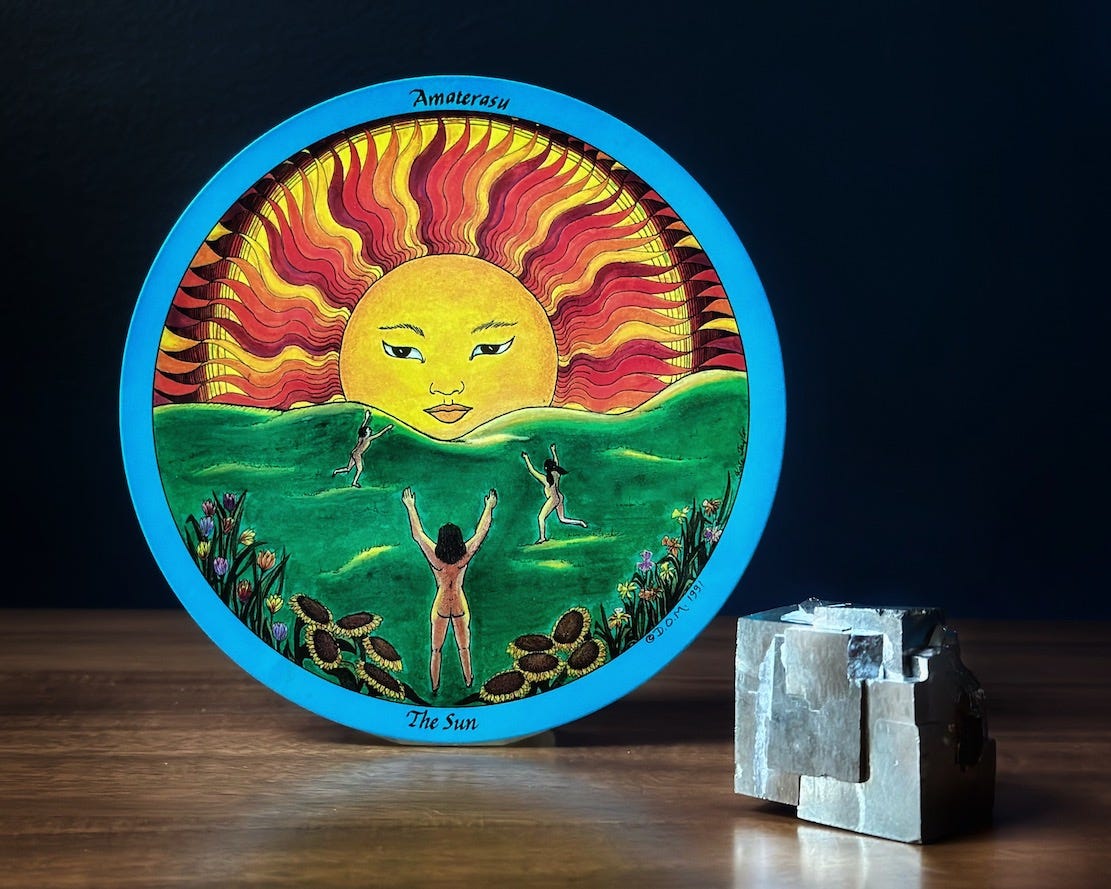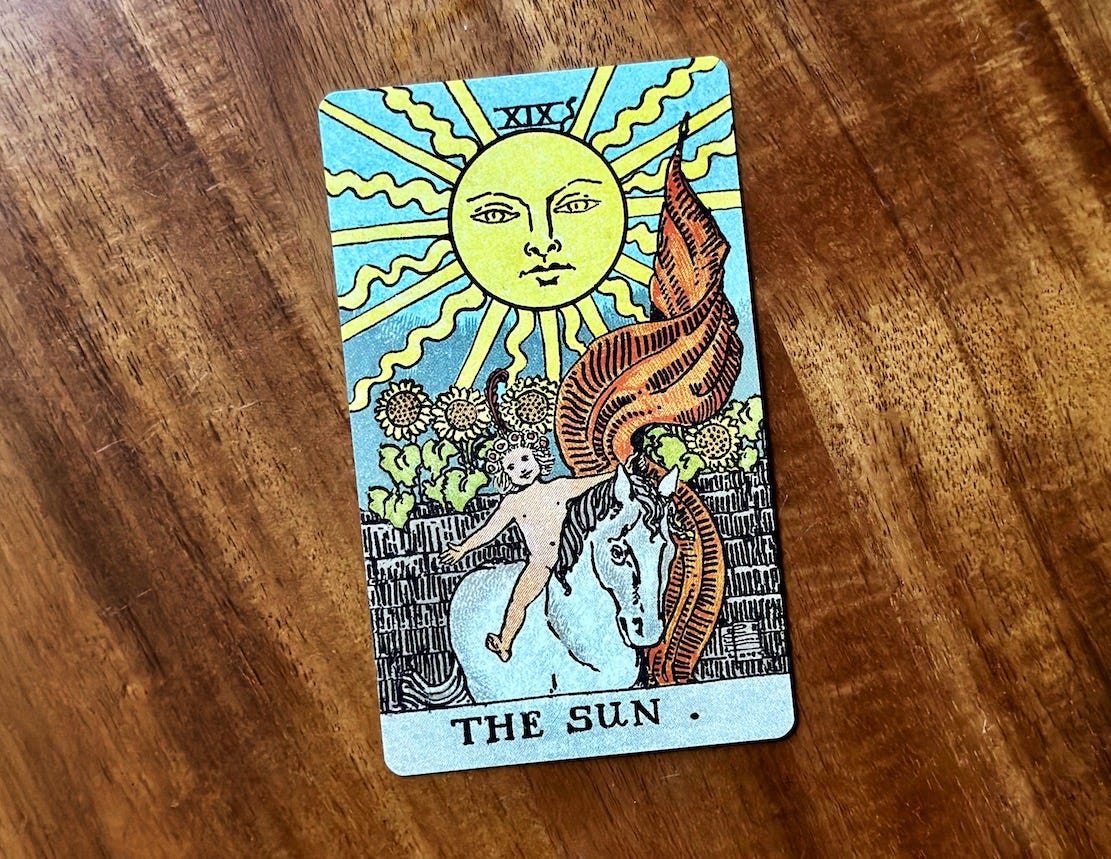It is 1990-something. You are turning eight or nine or ten. Birthdays mean a chance to celebrate with other kids, outside of school — a novelty for an only child.
People always have questions about this, the kind that leave you feeling less like a fascinating interview subject and more like a bug under a lens. Loneliness is a theme, as is solitude. Things you suspect, even at eight or nine or ten, say more about the asker than they do about you.
You never know how to answer, because the truth is, you have nothing to compare it to. It seems fine, the sole existence you inhabit. The only time you notice is when it comes to games.
Most conventional board games are for “four or more players,” but you rarely have four or more people — never mind willing participants — in your home at once. Still, you wind up with a stack of them, given as gifts, or purchased in the way you will one day buy impractical footwear, as though your circumstances might change.
On occasion, you attempt a two-player game with your dad, a person who is known to bend, or blatantly disregard, the rules. As if by magic, he is always dealt a better hand. Monopoly money materializes from beneath the board at the exact moment he needs it.
“That’s not fair!” you say, the lament of kids everywhere, though here, it’s undeniable.
“Well, life’s not fair, kid,” he says. “I’m trying to prepare you for the real world.”
You decide there must be something better than winning. But you’re not sure what.
Society has a lot of thoughts about winning. Namely, that it’s the best.
You needn’t look farther than the champions adorning the Wheaties box or Jordan’s silhouette on our shoes. Ditto for humans clutching trophies — Grammy, Oscar, BAFTA, World Cup, Tony, Emmy…and later this evening, the Lombardi Trophy. We love bestseller lists and “most popular” posts. We love the underdog, and also the undefeated.
For all its pomp and circumstance, especially the triumphant brass-heavy theme songs of the NFL, I find it ironic that the reason most people watch professional athletes isn’t due to competition, but connection.
It comes in a lot of forms — emotion, excitement, sentimentality. If you have money riding on it, the outcome of a game might literally pay off. But when I’ve asked friends about the origins of their personal allegiances, I’ve heard everything from “because my grandparents used to love them” to “I like the color of their uniforms” to “because Patrick Mahomes seems like a nice guy.”
Often, the same hormones are produced from watching sports (or any competition) as if we were on the field ourselves. Testosterone, adrenaline, cortisol, and oxytocin usher in aggression, excitement, stress, and bonding — a pretty well-rounded tour of the human experience. Much more than entertainment, games and competition shows allow us to relive our glory days, real or imagined. They let us try on new personas, invite us along for the ride. They help us believe in something bigger than ourselves.
We boil it down to winning when it’s about so much more.
In your twenties, you date a person who is alarmingly fond of video games. They play for hours — at night and on weekends, through perfect spring days. The appeal is lost on you, one of many reasons you eventually break up. But before that day comes, you try to understand.
“What is the point,” you ask, “If there’s no prize at the end?” So many hours spent in front of a screen, without promise of payment. No tangible reward. No increased knowledge. No chance of ever, like, winning.
“Because it’s fun,” they say. “Because I enjoy it.”
Improbably, it is an answer you can work with.
I am a deeply competitive creature. But if I have a least favorite word in the English language, it may well be “versus.”
I’m motivated by tangible goals — a distance, a word count, a new PR. I need an objective, preferably one that feels slightly out of my reach, to help get me out of bed in the morning. But such aims are mine alone. I don’t want them to come at anyone’s expense.
I felt a kinship with Haruki Marukami when I read his words on how an apparent lack of competitiveness make him well-suited for his pursuits as both a runner and a novelist.
“I’m not totally uncompetitive. It’s just that for some reason I never cared all that much whether I beat others or lost to them… I’m much more interested in whether I reach the goals I set for myself.”
One of the many reasons I love writing is that its subjectivity feels, to me, inherently uncompetitive. I truly believe that even if I tried, I could never write the same book as someone else. That if you give two writers the same detailed outline — same theme, same story, same structure — you’d get two vastly different works.
Jane Austen wrote Pride and Prejudice in 1813. In the two centuries since, some version of that story has been written countless times and marketed in as many ways. (Bridget Jones’s Diary being just one example.) And oftentimes, it not only works but manages to feel fresh.
We’re all operating on the same globe, dreaming and borrowing and twisting the same universal themes — it’s our personal spin that makes the difference.
For a while, I believed myself to be utterly uncompetitive. Competition seemed futile — not because the game is rigged, or the deck is stacked. (Though it may be!) But because I couldn’t see an end point.
If you zoom out far enough, there is no such thing as “best,” nor “most.” It’s a big world. Every record will eventually be broken, every winner eventually unseated. Every GOAT will one day be out-GOATed.
These days, I aspire to be the most least competitive person. Aggressively engaged, aggressively invested — but not in the outcome as much as the pursuit. To show up, play with heart, and chase whatever brings meaning. Winning is but a welcome bonus.
Though my trophies may be few, I suspect their value comes not from the one shiny moment in which they were bestowed, but in all the lesser ones leading up to it. In the striving and the wondering and the grit.
Sure, winning sounds great, and we’d probably all choose it if we could. But when that outcome isn’t available, I like to remember these favorite words from Rupaul: “Being in the game is the prize.”
So whether the best man wins or gets cheated out of it, may the game itself be the prize. The emotion, the connection, the memories, the meaning — the reasons we were in it in the first place.
Card of the Week
Here is this week’s card for the collective, as well as some thoughts to carry into the days ahead. As most modern readers will tell you, the tarot is not about fortunetelling, nor is it about neat, definitive answers. The cards are simply one path to reflection, a way of better knowing ourselves and others through universal themes. If this reading resonates with you, great! And if not, no worries. Take whatever may be helpful and leave the rest.
Always a welcome sight, The Sun is generous — in its size, its scope, its presence. It is responsible for everything we see, everything we touch, everything we hold dear. Without it, there is no life.
With a power like that, it could lord it over us. It could threaten to leave, to stop, to change. But it is so steady that we may often forget it’s there.
The Sun misses nothing, a glorious and powerful witness to all that unfolds before it. Even when we may not feel it — in the depths of winter, the height of darkness, the fog of rain, its energy prevails.
Our beliefs about pretty much everything emanate from somewhere outside of us. Though we may craft our own ideology — weighing our convictions with care — many of our viewpoints are often bestowed upon us by someone, or something, else.
They may come packaged and gift wrapped, the result of careful teaching. They may be thrust upon us by experience or drummed into our subconscious via pages and billboards and screens. They may be slipped into our pockets without our knowledge.
The Sun invites us to channel who we were before the world imprinted itself upon us — our truest self — and let them out into the light.
Traditionally, this card often incorporates a child on horseback, basking in golden rays. Its tone hearkens back to a simpler time when the world seemed vast and unknowable. Back then, we may have posed the question, “Why?” asked not from a place of skepticism, but from a place of wonder. The Sun urges us, whatever our current stage, to approach the world in much the same way.
This card encourages us to be present — the most cliché and irritating advice! Especially when we may not love where we are. But the Sun tries to lead by example, standing sentinel, making its presence felt.
Imagine you are on a beach, or a field, or a mountain, or some other vast and awe-inspiring place. You are bathed in the sun’s rays, warm and soothing. Inside that moment, life is good. You feel held. Content. That’s what we’re after.
No good will come from worrying about the future. Nor will be gained by ruminating on the past. So even if it’s just for one minute, go out in the light. Step outside. Sit by the nearest window. Take a moment to feel your place in this big, mad world. That’s all. Feel the sun and know you are seen and counted.
This card invites us to consider mystery. There’s an awful lot about the world we do not — cannot, could never — understand. But we can partake in it anyway, appreciating and basking in its gifts.
Not everything requires action. Not everything can be solved by doing, hustling, pushing. Steadiness is often undervalued, but its rewards are plenty.
The Sun asks us to meditate on the steadiness we can create for ourselves. As you move throughout your days, be mindful of the sun’s presence. As it shows up, day after day, lighting the horizon, bringing life to all it meets. Trust not only in its goodness, but also in your own.













Such smart insights. Great reflections to read before bed.
Fab, again!